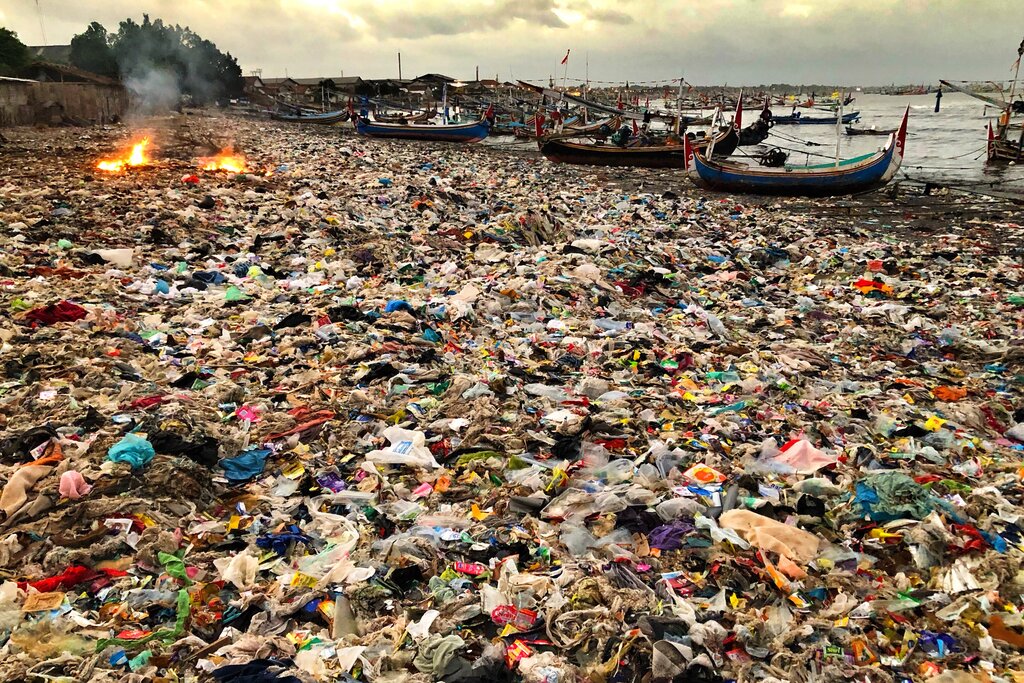Global negotiators agreed to develop a legally binding treaty to end plastic pollution at last week’s UN talks in Paris, though countries are still divided over issues such as whether the rules should be legally binding and whether they will limit fossil fuel companies’ manufacturing of new plastic products.
—
More than 170 countries have agreed to craft a draft plastic treaty after a week of tense negotiations at a UN conference in Paris, though divisions remain over issues such as whether the rules will be legally binding.
Last week’s second meeting of the Intergovernmental Negotiating Committee (INC2) saw global delegates discuss how to reduce plastic pollution at the UN Educational, Scientific and Cultural Organization (UNESCO) Headquarters in Paris, France. The conference ended with an agreement to produce an initial draft before the next meeting in Kenya in November. Countries will have until the end of next year to settle the final terms of the deal.
Environmental groups welcomed the outcome, though concerns remain over potential hindrances from the petroleum industry and fossil fuel-producing countries. Indeed, while a coalition of “high-ambitious” governments led by Norway and Rwanda is looking to end plastic pollution altogether by 2040 by slashing production, nations including the US, Russia, and China want a less-ambitious, voluntary system in which countries are free to set their own frameworks and regulations around plastic manufacturing.
“Now is the time to end the age of plastics, but it is clear from this week’s INC2 negotiations that oil producing countries and the fossil fuel industry will do everything in their power to weaken a Global Plastics Treaty and delay the process,” said Greenpeace on Twitter.
“The Global Plastics Treaty must tackle plastic production head on. A strong Global Plastics Treaty will align with the need to stay within 1.5℃ and move the world away from its plastic addiction. Anything else less than that, and the treaty will fail.”
Petrochemical companies, which are growing more reliant on plastic production as the world shifts away from fossil fuels, are backing the latter approach. Represented by the American Chemistry Council (ACC) in Paris, they campaigned for solutions that do not directly impact production, such as waste management and recycling.
“We’ve heard a lot of talk this week about capping production but we’ve also heard a lot of talk from governments about the role of plastics to achieve society’s goals,” said Stew Harris, ACC senior director of global plastics policy.
Negotiations to develop the first international, legally binding treaty on plastic pollution, on land and at sea, began in February 2022 in Nairobi, Kenya, when the UN Environment Assembly approved a landmark resolution to establish the world’s first international treaty on plastic pollution. The deal was seen as the most significant multilateral environmental agreement since the 2015 Paris Agreement.
The world generates more than 300 million tonnes of plastic waste each year, compared to two million tonnes in 1950. The amount is projected to double by 2040. This exponentially growing environmental issue is associated with rising air and marine pollution. It is estimated that roughly 40% of the ocean’s surface is covered in plastic debris, impacting more than 800 marine and coastal species through ingestion and entanglement. If our plastic consumption and behaviour continues, scientists warn that there will be more plastic than fish in the ocean as soon as 2030.
According to a recent report co-published by the nonprofit Defend Our Health and Bloomberg Philanthropies’ Beyond Petrochemicals campaign ahead of the Paris summit, the beverage industry is behind a large share of global plastic waste. Polyethylene terephthalate (PET) plastic bottles, the report suggests, are cause hazardous chemical pollution at every stage of their life cycle. Beverage companies like Coca-Cola, PepsiCo, and Nestlé are among the world’s largest plastic polluters, producing more than half a trillion plastic bottles every year – nearly a million per minute.
You might also like: World Environment Day 2023: 10 Scientific Solutions to Plastic Pollution


















